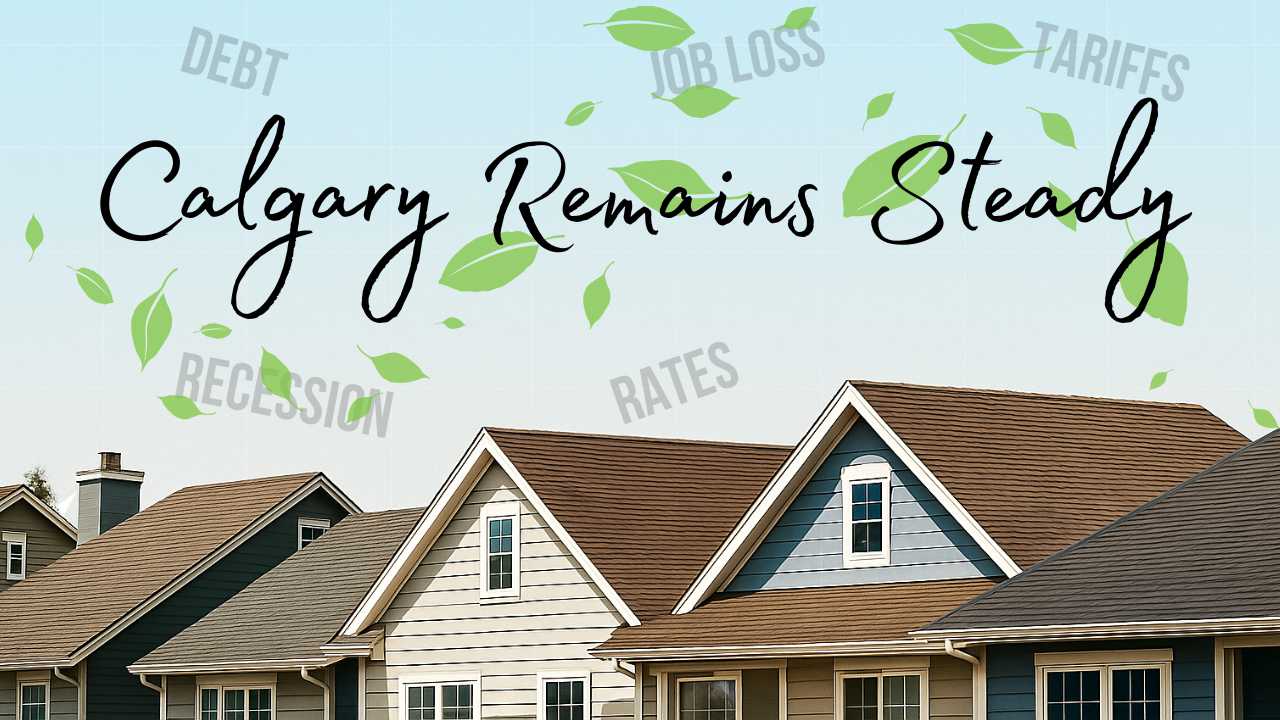Is 2025 a good year to buy your first home in Calgary? The headlines can feel overwhelming. Between trade disputes, a cooling job market, and changing interest rates, it’s easy to feel stuck on the sidelines unsure what decision to make, and when to make it.
The reality? The housing market is showing early signs of stability — even as Canada has slipped into a mild recession — and that could present unique opportunities for first-time buyers. Let’s break it down.
The Housing Market: Not Booming, But Holding Firm
In July, home sales in several major Canadian cities jumped 9%, with sales outpacing the number of new listings. That’s a sign the market has likely found its “floor” — meaning prices are less likely to drop sharply from here.
In Calgary, sales have remained steady while inventory has increased. But the broader national view is encouraging because stable market gives you a better chance to buy without worrying your home value will sink immediately afterward.
The Bigger Picture: Canada in a Mild Recession
Oxford Economics says Canada is already in a shallow recession, triggered by a trade dispute with the U.S. Here’s what’s driving it:
-
Tariffs and trade tensions → Fewer Canadian goods being sold to the U.S.
-
Manufacturing slowdown → Car exports, metals, and other industries are struggling.
-
Weaker job market → Over 40,000 jobs lost in June, with more losses expected.
They expect the economy to shrink slightly through the end of 2025, with unemployment possibly rising to 7.6% (it’s 6.9% now).
Why Defence Spending Could Change the Game
The federal government has committed to a big increase in military spending — first to 2% of GDP this year, and then ramping up to NATO’s new 5% target by 2035.
This could boost economic growth in the longer term, but it will also be debt-financed, meaning government borrowing costs will rise. That matters because…
Bond Yields and Mortgage Rates
Rising government bond yields often mean higher fixed mortgage rates, since lenders use those yields to price their loans. Oxford now expects Canada’s 10-year bond yield to climb to 4.0% by 2027 (up from 3.84%). What does that mean for you?
-
Fixed mortgage rates may remain higher than we’ve seen in recent years.
-
Variable rates could hold steady for now — the Bank of Canada’s policy rate is expected to stay at 2.75% — but they might cut once or twice if the economy weakens further.
The Tariff Wild Card
If the U.S. follows through with threats to impose steep tariffs (up to 35%) on Canadian goods that don’t meet USMCA rules, the recession could deepen. That would likely mean:
-
More job losses
-
Slower economic growth
-
Possibly more pressure on the Bank of Canada to lower rates
What First-Time Buyers Should Do Now
The mix of a steady housing market and economic uncertainty can actually work in your favour — if you prepare. Here’s how:
-
Get pre-approved now to lock in today’s rates before they change.
-
Know your budget so you can act quickly when the right home appears.
-
Work with a mortgage broker who can shop the market and explain the trade-offs between fixed and variable rates in this environment.
The Canadian economy may be facing challenges, but Alberta’s housing market is showing stability for the moment. For first-time buyers, this could be a window to enter the market before prices climb again. Reach out to me and we can talk it out.



